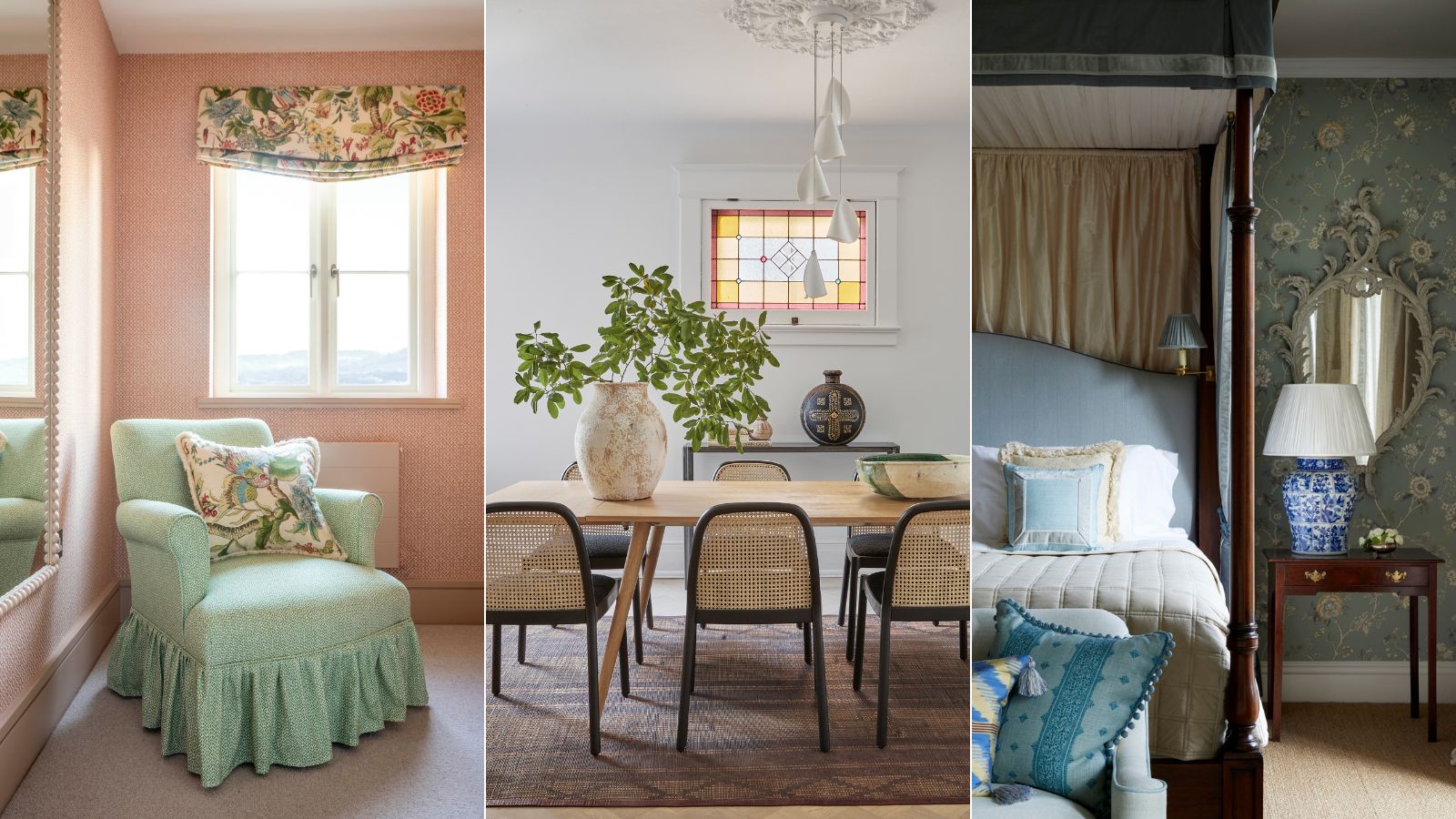
Incorporating vintage decorating ideas into modern schemes is a wonderful way to create spaces with character and a relaxed feel.
Increasingly interior designers are mixing vintage trends and styles from across the eras to create eclectic, lived-in spaces that feel as if they have evolved organically over time. If you’re a vintage lover embarking on a decorating project, these vintage interior design trends making a comeback could be the inspiration you’re looking for.
Vintage trends making a comeback this year
Interior designers and homeowners alike love decorating with vintage, as it creates interiors with soul, personality and stories to tell. Combining new pieces with those from across the decades brings unique personality to interiors. However, it’s a careful balancing act – too much vintage and spaces can end up looking like a museum but, when carefully curated vintage trends can really enhance a room.
'Blending a combination of antique furniture with modern designs can be very transformative. With modern homes, people often think they can't house antiques but this is simply not the case! If you use antiques in the right places and allow them to be statement pieces, they can really add drama and depth to any living space,' says Emma Deterding, founder and creative director of Kelling Designs.
'Avoid dressing them in a period style, but use them as statements throughout your home, creating points of interest as you go from one room to the next.'
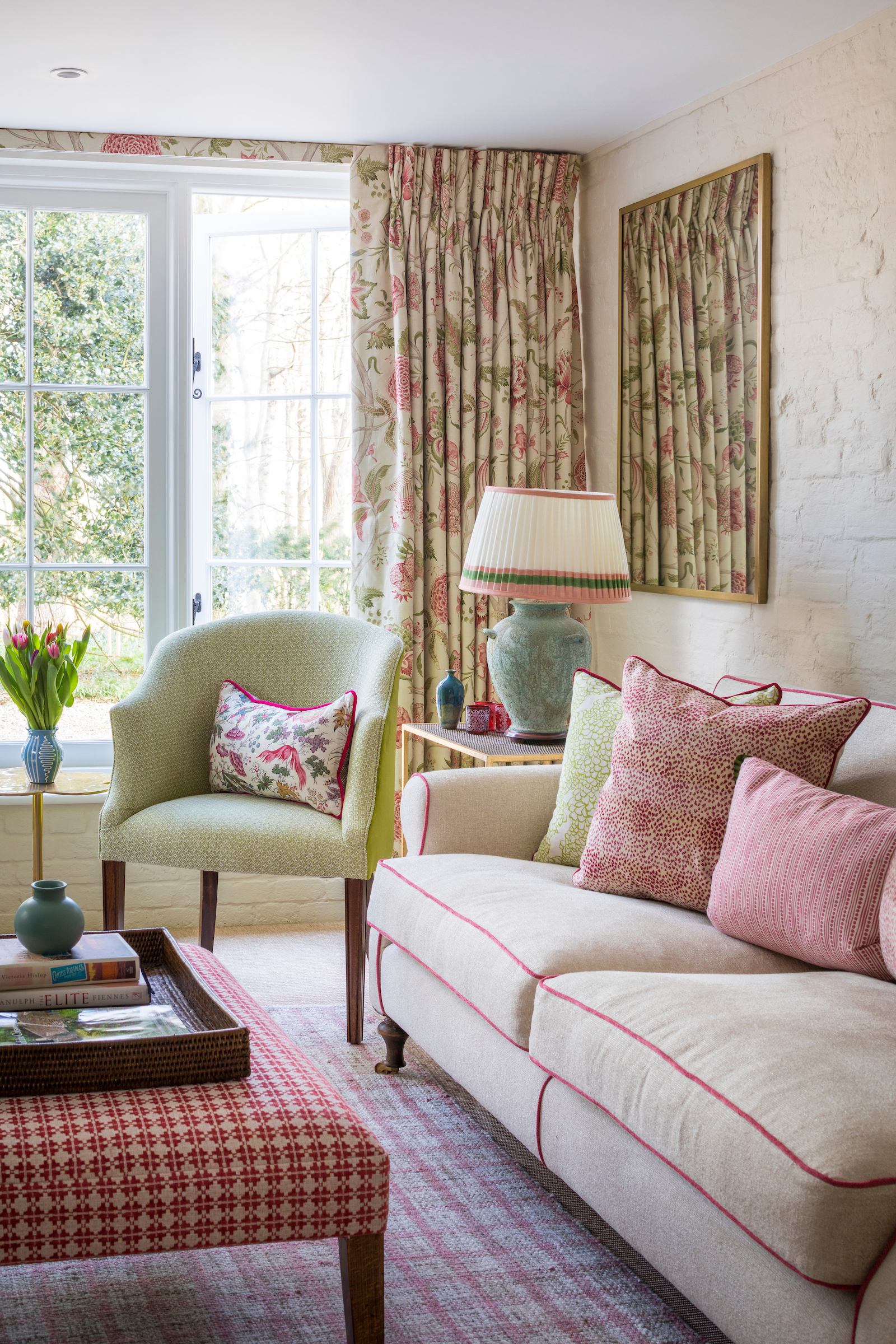
It's safe to say some vintage trends can be left firmly in the past such as the carpeted bathroom (although maybe we should never say never?), others, however, are having a revival and can work wonderfully as part of modern schemes. From colored bathroom suites to skirted chairs, we’ve rounded up the vintage trends we love that are making a comeback this year.
1. Skirted chairs
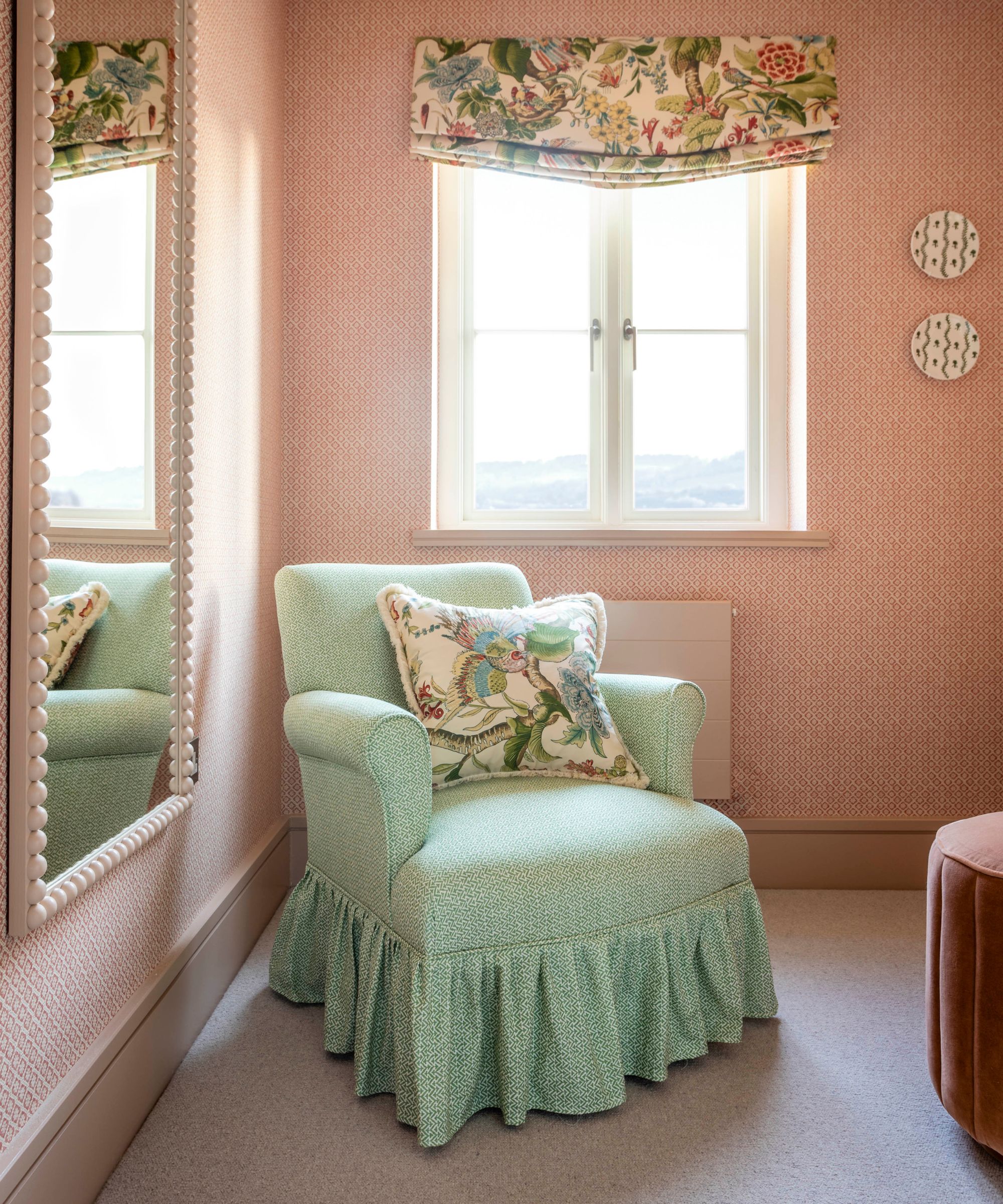
Frills are no longer a thing of the 80s, they're back, bringing a fanciful flourish to interiors in all sorts of ways from skirted cabinets, chairs and sofas to trimmed footstools and lampshades. Feminine and playful, skirted occasional chairs make the perfect addition to bedrooms and dressing rooms.
'Gathered skirts are a detail we love to incorporate into our designs,’ says interior designer Sean Syminton. ‘We love buying antique chairs and reupholstering them so by adding a skirt along with a fun fabric, it gives it a modern edge. We love the whimsy touch that they add to any room.'
2. Curtain pelmets
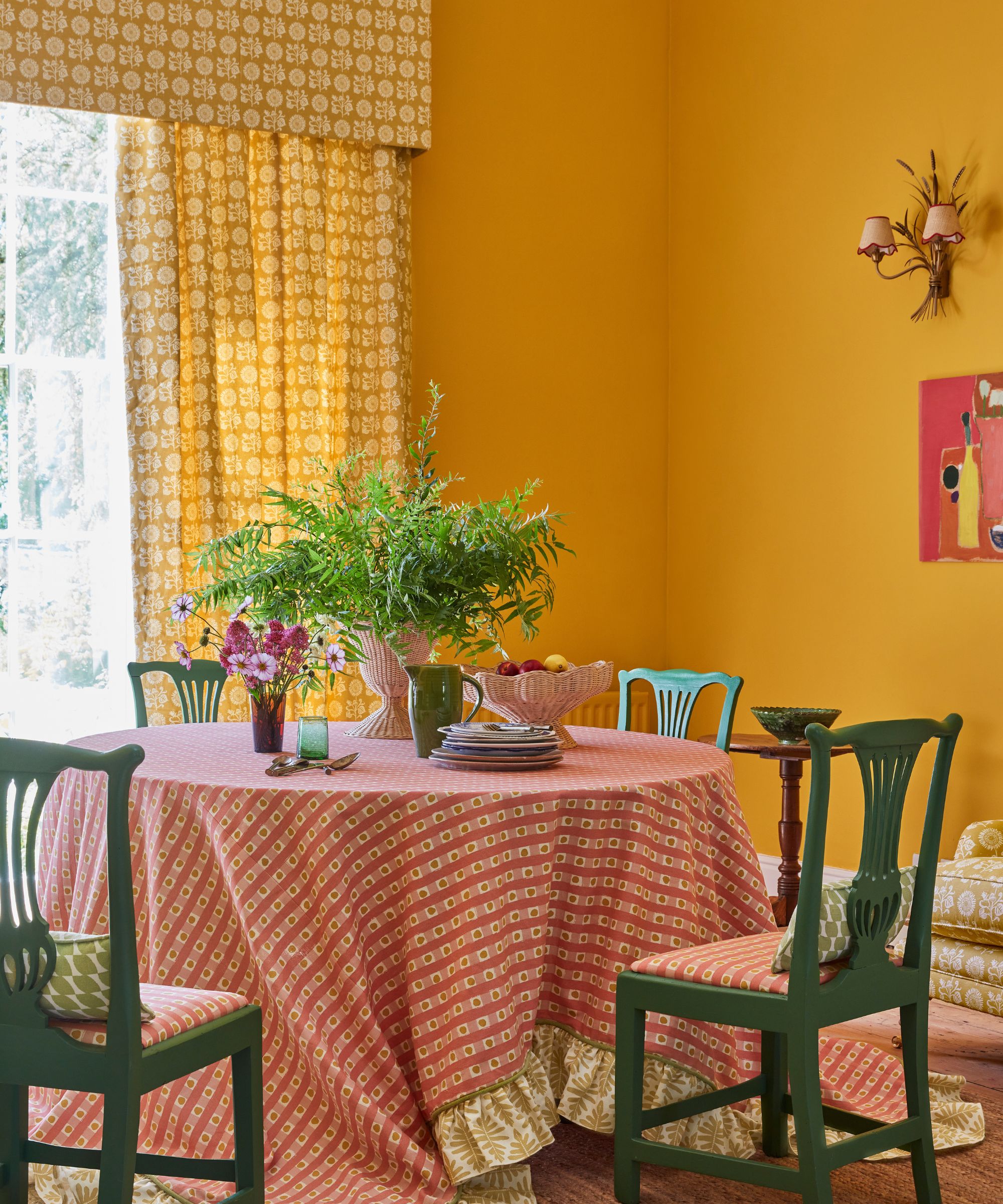
Curtain pelmets were long viewed as a dated design feature, but now the tables are turning and the curtain fixture is retaking its place in interiors.
‘Curtain pelmets don't have to be swags and tails. In this Georgian house the plain rectangular shaped pelmet gives a more contemporary feel,’ says Vanessa Arbuthnott. ‘I think all rooms can benefit from a pelmet, in different proportions depending on the scale of the window.’
As well as being a decorative feature, pelmets can serve a practical purpose, too. ‘A curtain pelmet frames large windows, hides curtain rails, and can make a window feel smaller and the room more cozy,’ adds Vanessa. ‘Large curtains can draw more smoothly on a rail with a pulley, so it's essential to hide the rail and tidy up the top of the curtains with a pelmet.’
3. Four-poster beds
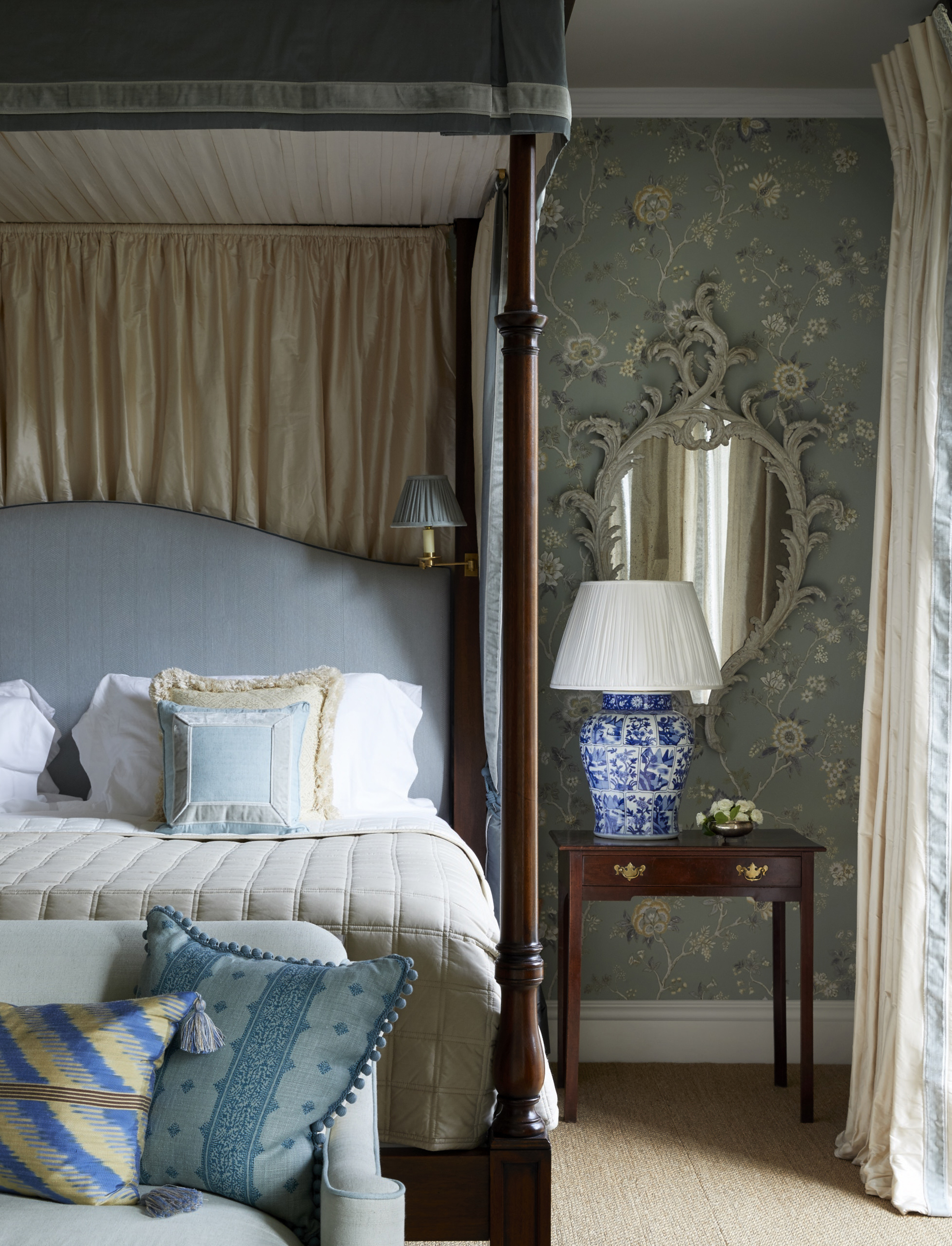
Reminiscent of grand historic homes, four-poster beds have made a comeback in recent years as we seek ways to make our bedrooms serve as sanctuaries away from our busy lives.
With their ability to create an intimate nook within a larger space, the four-poster bed is a great way to achieve the coziness we crave. Traditional designs with fabric canopies and drapes work well in vintage bedroom schemes, but more modern, streamlined interpretations are also emerging.
‘Historically four poster beds were a sign of wealth and the richer the owner the more elaborate the bed's hangings or carvings. There were many different styles – some early ones were like bunk cabins, on platforms and others only had side and back rails projecting from the walls. The more over-the-top ones could be dressed in the finest gold embroidered silks, trimmings and even adorned with precious stones,’ explains Henriette Von Stockhausen, founder of VSP Interiors.
‘We do a lot of four-poster beds for clients. Some beds are more detailed while others are simpler and more contemporary but in essence, they all do the same thing which is to create extra comfort and a sanctuary - like a room within a room. This is particularly relevant in country bedrooms which are often large and cavernous with high ceilings in which one could otherwise feel quite lost.’
‘I personally like to compound the feeling of coziness and comfort by using darker colors on the inside of the beds as it helps create that womb-like experience and a feeling of security that one craves after a long day at work.’
4. Tiled fireplaces
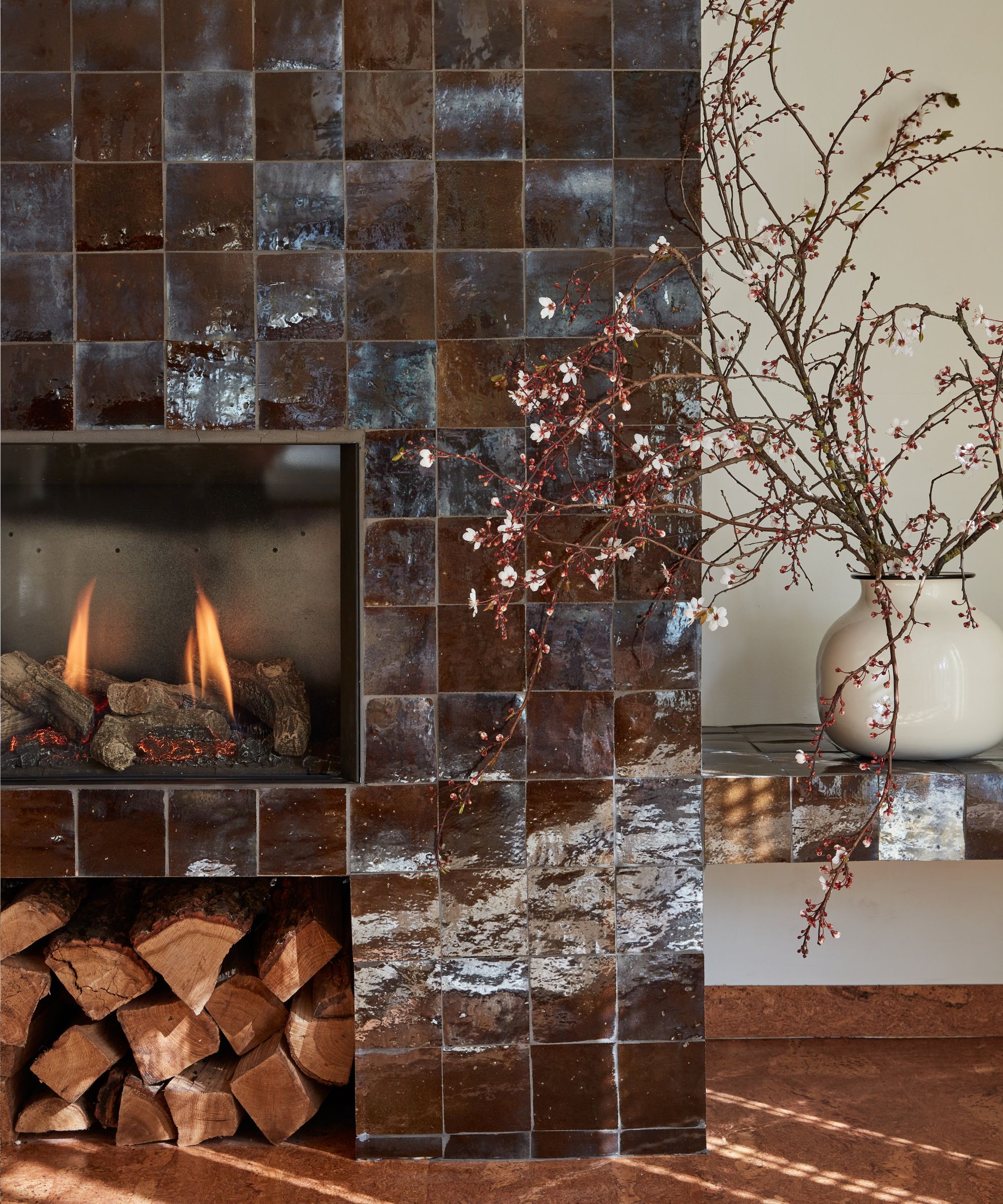
Tiled fireplaces and fire surrounds are nothing new, they have been featured in interiors across the globe for centuries, from Spain to Sweden. They were also common in both the Art Deco and Midcentury periods. While they fell out of fashion in the late 20th century, they have been on the rise in recent years. We’ve spotted several examples encased in hand-made zellige tiles creating a colourful and textural feature within a room. Here Cote de Folk used brown zellige tiles to create a striking focal point.
‘I chose the chocolate zellige tile for its versatile nature. Although primarily brown, these tiles can appear silver at times, playing with light and its reflective qualities,’ says Sophie Rowell, founder of Cote de Folk. ‘This is why I love incorporating tiles into my projects, they add depth and visual interest through their interaction with light. Additionally, they are incredibly durable. I have used them in various applications, including a floating tiled island in a kitchen, as tiled countertops, fireplaces and bench seating.’
5. Folksy painted furniture
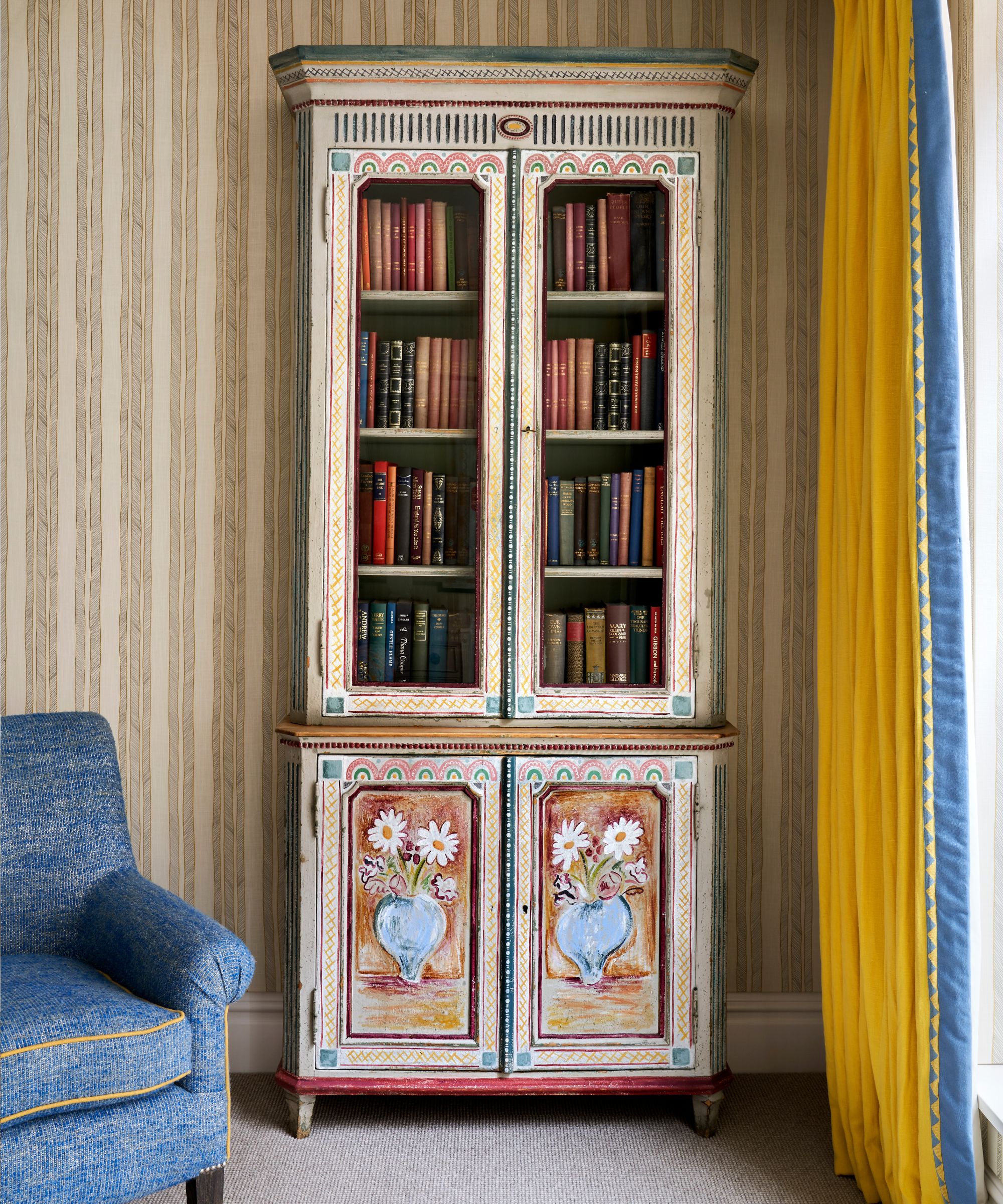
Folsky-painted furniture with naive floral motifs or abstract patterns was once a common feature of rural European homes.
In recent years, interior designers and homeowners have been rediscovering painted furniture techniques, using them to create unique interiors with folksy charm. Painting furniture is also a wonderful way to breathe new life into tired pieces that would otherwise go to landfill - perfect if you're into eco decor. Today there is an array of talented artists who specialize in decorative painting for furniture and walls, alternatively, why not give it a go yourself?
‘I think decorative painting gives soul to a space. Seeing individual brushstrokes and the hand of a painter adds narrative to a room and a history to a house,’ says decorative artist Tess Newall.
‘I also think there has been a shift in the value we place on how things are made and how long we should have them for. This is something that has happened before with the Arts & Crafts Movement of the late 19th century and their philosophy that people should be surrounded by beautiful, well-made pieces made to last and which could be used in everyday life. My husband Alfred is a furniture maker so these values are very much ingrained in our house!’
‘This cupboard for Kit Kemp was inspired by the Bloomsbury Group, who often repurposed objects they already had with simple patterns and color combinations – something ordinary was turned into a piece of art in its own right.’
6. Caned chairs
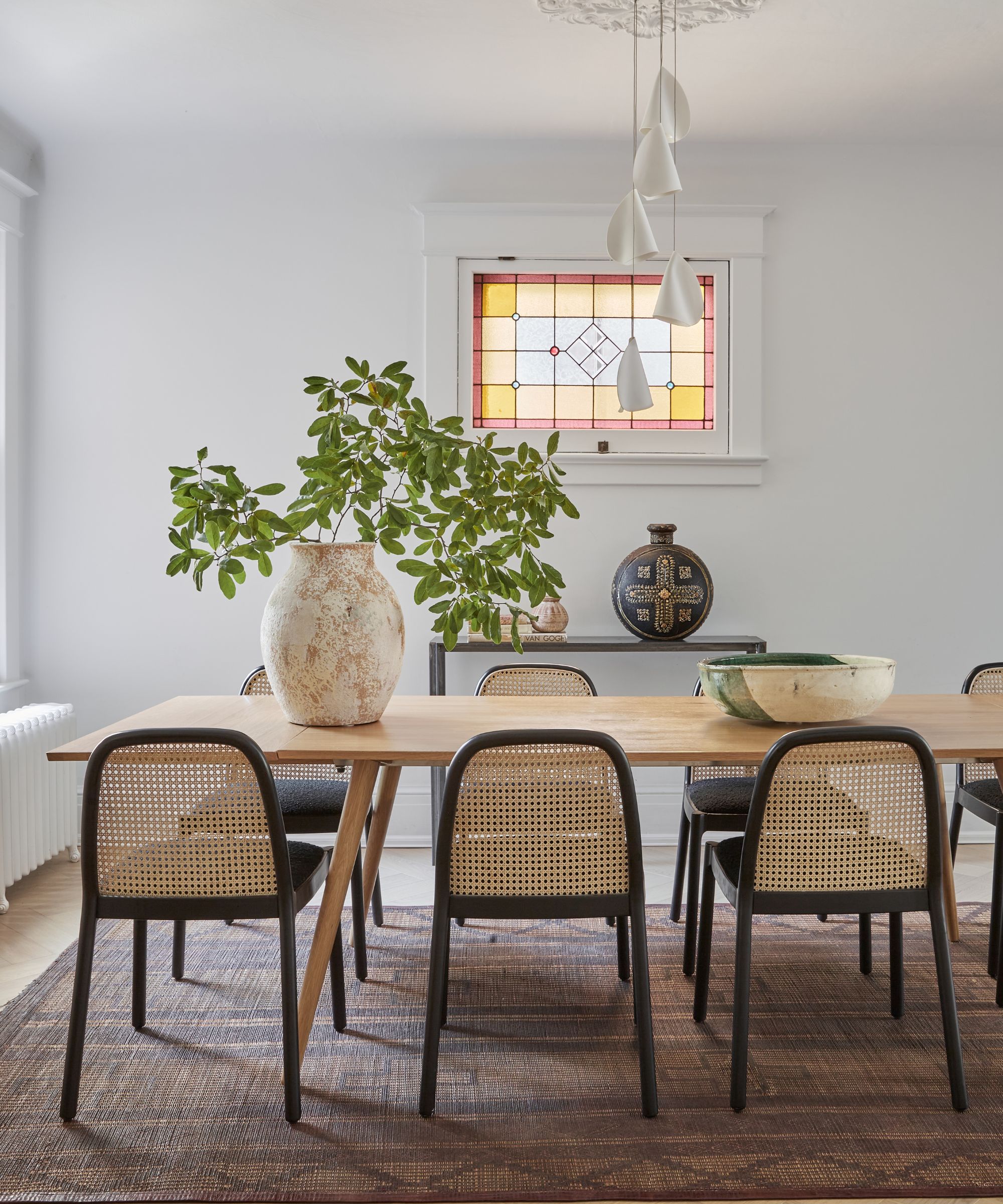
Caned chairs are everywhere at the moment. Traditional caned Bergere chairs with wooden frames and woven cane panels became popular in 19th-century Europe, particularly in the Regency period, but the origins of the caning technique go back even further. Today Interior designers are often drawn to caned pieces for their warmth and texture. Authentic antique pieces are available, yet there are also plenty of modern reproductions.
'The hand-made organic nature of the material is a perfect foil for the traditional bones of this 120-year-old home,' explains Sam Sacks, principal designer and founder of Sam Sacks Design. 'This use of caning brings in a laid-back, almost tropical, vibe that works surprisingly well in Victorian homes, but is as comfortable in an elegant city house as a summer cottage - that’s because this ancient furniture-making technique has popped up in just about every architectural era. I love cane just about anywhere!'
‘The cane webbing on these chairs strikes an instantly relaxed and welcoming note in a room in which the architecture might otherwise read quite formal,' adds Sam Sacks.
7. Chintzy prints
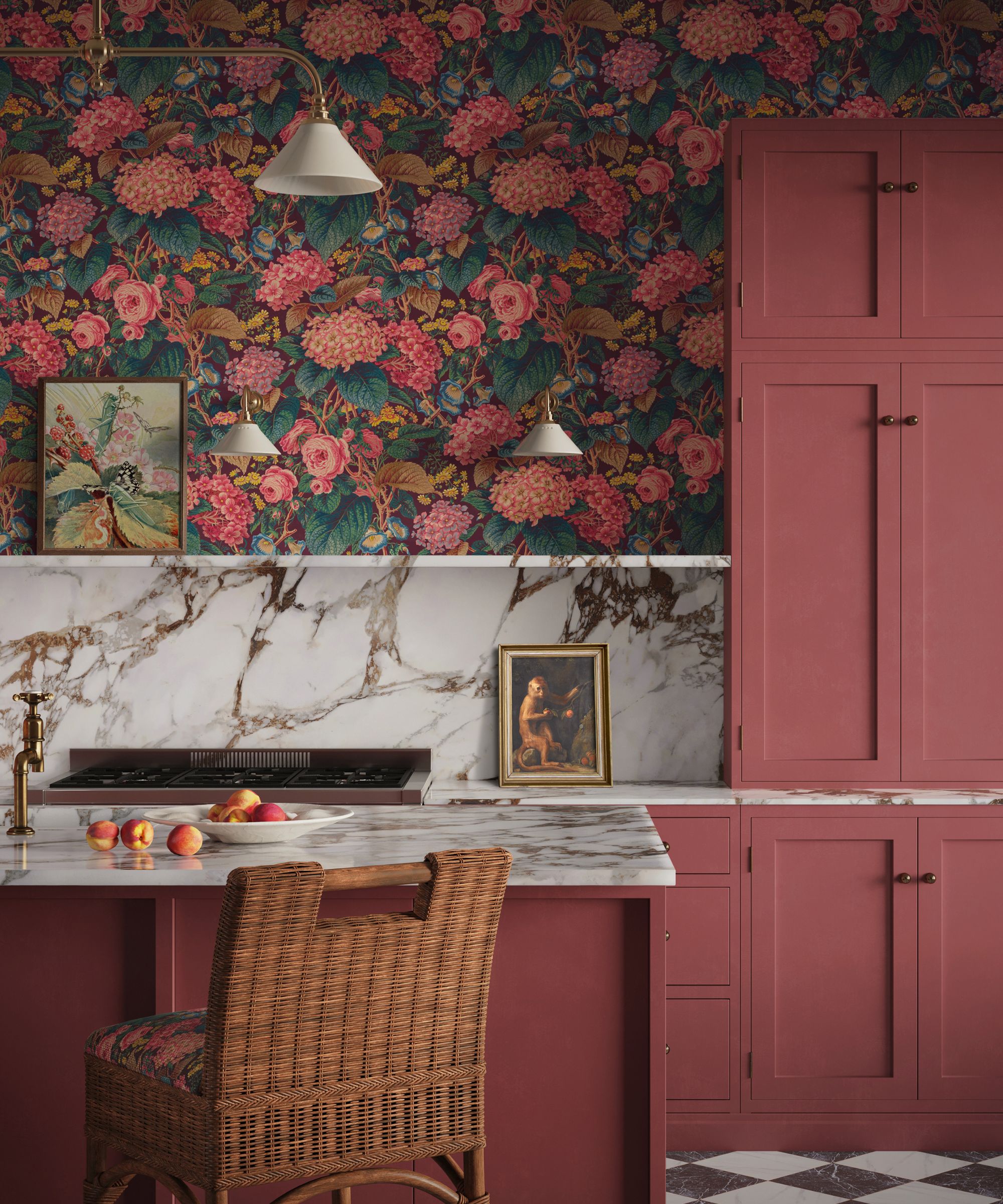
Flamboyant chintzy florals were popular in the 1980s but were shunned in the late 20th century and early noughties. However, they're now having a revival as the maximalist aesthetic takes hold and we become more confident with color and pattern.
When it comes to print trends, chintzy designs are featuring prominently this year, with fabric and wallpaper houses increasingly taking inspiration from heritage prints and reviving them to create contemporary chintz designs in fresh palettes for 21st-century interiors. Featuring blowsy blooms and vibrant colors, The Brambles design from Divine Savages is perfect for a maximalist scheme.
‘We are both children of the 1980s, a time when chintz saw its biggest revival to date, and so we grew up with kitsch patterned walls and bold floral carpets all around us. These floral memories now instill a heavy dose of what we affectionately call ‘Nana Nostalgia’ (we even named a wallpaper collection after it). Embracing bold botanicals and fantastical florals can really uplift the spirit of a home,’ says Jamie Watkins, co-founder, Divine Savages.
8. Colored bathroom suites
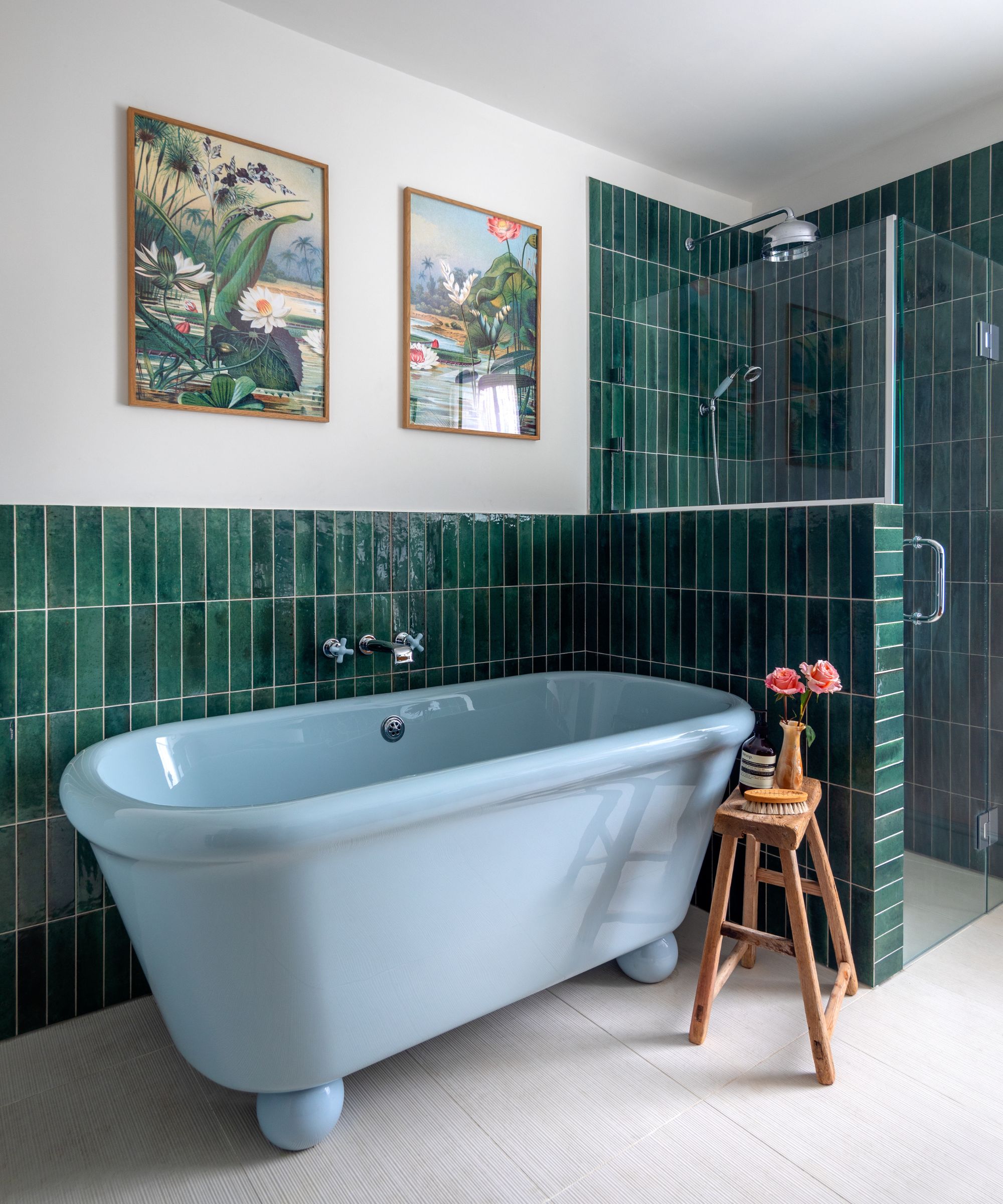
Popular in the 1950s - '70s, often in shades of blue, turquoise, and avocado, colorful bathroom suites are another vintage trend making a comeback, bringing a bright dose of retro kitsch.
For those looking to inject a pop of color and nostalgia, several bathroom companies are now offering bathroom sanitaryware in an array of shades reminiscent of retro suites, yet often with modern styling for a contemporary look. In this colorful bathroom, interior designer Lizzie Green chose a bath by Water Monopoly as part of a botanical-themed space.
'The brief from the client was simply "botanical but playful", which I'm pleased to say we got spot on,' says Lizzie Green. 'The client wanted jungle vibes to remind her of her native Borneo, so we went for a sky blue bath, rich glossy green tiles and a large vintage rattan sideboard.'
'Colorful bathroom suites offer a distinctive and playful take on traditional white sanitary ware which can sometimes feel sterile. Paired with a more neutral backdrop or materials it can be toned down, equally paired with a bold tile it can give a huge impact.'
Interior designers are increasingly looking to the past for decorating inspiration, mixing vintage furniture and design trends with new in order to create eclectic, soulful spaces. When it comes to vintage furniture trends, we've spotted skirted chairs and sofas, caned furniture and four-poster beds all making a comeback in interior design this year.
In terms of fabrics, prints and soft furnishings, chintz is witnessing a huge revival spurred by the trend for maximalism, while curtain pelmets and bed canopies are also becoming increasingly popular.







